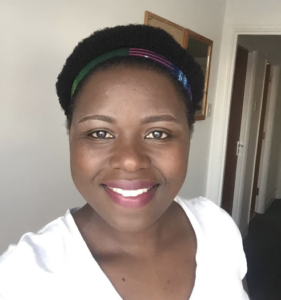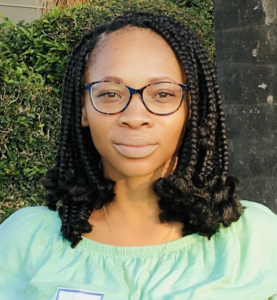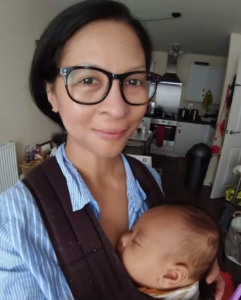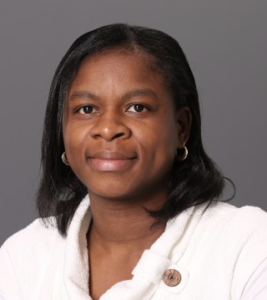The increased participation of women in mathematical sciences has been a challenge worldwide. The UNESCO Institute for Statistics records that women account for less than 30% of the world’s researchers. According to the recently published book, Gender Gap in Science: A Global Approach to the Gender Gap in Mathematical, Computing, and Natural Sciences How to Measure It, How to Reduce It?, this is exacerbated by several obstacles that obstruct the pipeline of women scientists. Those obstacles include, among others, “missing role models, slow career progression, and lower doctoral programme quality”. Although some progress has been made to address some of these issues, which includes the implementation of some projects and programmes funding and targeting women, the progress is not yet at a desired pace.
In the light of this background, the COVID-19 global pandemic, and the commemoration of Youth Month in mind, AIMS House of Science convened a series of AIMS Women In STEM (AIMSWIS) Mentoring and Networking webinars on the Google Meet platform. The webinars aim to provide an enabling environment for women to share knowledge, challenges, and opportunities; and to empower each other. The webinars held on 6, 13, 20, and 27 June 2020 under the theme “Women Advancement in Mathematical Sciences: Achievements, Challenges & Opportunities” provided such an environment. The webinars were attended by AIMS students (South Africa and Ghana), alumni, academics and researchers as well as students from the Universities of KwaZulu-Natal and South Africa.
“Mentoring and supporting women by creating a conducive environment in mathematical sciences is more important than ever before”, said Dr Rejoyce Gavhi-Molefe, AIMS House of Science Manager.
The webinars featured four female role models (AIMS alumni), based in various institutions across the world and currently pursuing different career paths in academia and industry. The role models included: Ms Fatumah Atuhaire, a final year PhD candidate in Mathematical Biology at the University of Southampton, United Kingdom (UK); Ms Mulanga Makhubele, Data Science Specialist at Telkom, South Africa; Dr Gaelle Andriamaro Rabarison, Research and Development (R&D) Scientist at Thales, UK; and Dr Omowunmi Isafiade, an academic at the Department of Computer Science, University of the Western Cape (UWC), South Africa. During the webinars, they shared their insights with regards to issues related to career progression and the associated lessons learnt, research opportunities, and challenges that are unique to African women in mathematical sciences in their respective contexts.
“I am grateful for the opportunity to join the AIMSWIS… it has helped me a lot. I had fear [sic] at first about doing a PhD since I’m in the process of starting it, but now I’m ready to take on the world”, said one participant.

Ms Fatumah Atuhaire
Fatumah completed a structured and research masters in Applied Mathematics at AIMS Ghana and AIMS South Africa, respectively. Her PhD research focuses on using differential equations to model the spread and control of Buruli ulcer disease. She is passionate about science communication and has given several talks to non-academic audiences on her work.
Fatumah began her talk with a detailed map of her “Life after AIMS”. She focused on the various opportunities that were available after AIMS and how her networking skills enabled her to secure a PhD position in the UK. Fatumah also touched on the importance of strengthening networks with fellow AIMS alumni, as these can yield more opportunities for growth and career progression. She discussed the challenge of obtaining scholarships and the importance of flexibility when looking for PhD opportunities. She referred to how she initially wanted to pursue research in Financial Mathematics but could not do so due to lack of opportunities and funding. She encouraged the participants to not waiver in such instances, but to continue applying and speaking to various potential supervisors.
“Opportunities can be everywhere, all you have to do is to keep trying”, she said.
She also advised the participants not to be consumed by their research but to learn to maintain a balance between career and life. Fatumah has a YouTube channel where she posts videos about her PhD journey, lessons learnt, and career opportunities.

Ms Mulanga Makhubele
Mulanga holds a Bsc Mathematics and Mathematical Statistics from the University of Cape Town and a BSc (Hons) Mathematics (cum laude) from Stellenbosch University. She is currently pursuing an MSc Applied Mathematics at Stellenbosch University part time with a focus in Computer Vision. She started her career working as a consultant at Accenture and has now moved to Telkom where she is a data science specialist.
Like most career women, she is juggling being a wife, mom, blogger, student, and data science specialist. She framed her talk around empowering women who want to venture into corporate positions. Mulanga, who participates in and leads Data Science projects at Telkom, spoke extensively about life in corporate South Africa and on how to position yourself in the corporate world. She emphasised how competitive it is in the business world and that one needs to be proactive and assertive in order to thrive. She also added that it is generally difficult for women to position themselves in the corporate world, more especially black women.
“One thing I have noticed about corporate South Africa, or corporate in general is that sometimes women sit somewhere in a corner and hope that someone notices how smart they are or how hard they work, when in actual fact you should make people see you”, she said.
Mulanga also advised on the importance of choosing a job that is fulfilling and aids career progression at the same time. She emphasised that it is important to use one’s job and available resources to advance one’s ultimate goal.

Dr Gaelle Andriamaro Rabarison
Before venturing into an industry-academia position, Gaelle completed her Honours, Structured Masters, and Research Masters degrees from the University of Antananarivo in Madagascar, AIMS South Africa, and Stellenbosch University, respectively. She then moved to Glasgow to pursue her PhD in Finite Element Methods – a field of Numerical Analysis and Approximation Theory.
She has been working as an R&D scientist for Thales, an engineering company with various interests in security, cyber-security, transportation, space and aerospace, since 2014. At Thales, she is responsible for reviewing literature and finding research that has the potential to guide prototypes that can be developed into high-end products. She considers her time in South Africa to have been her best formative years. She also believes that her time at AIMS has allowed her to pursue her ambitions of applying mathematics to solve real-work problems. She is grateful about the opportunity AIMS afforded her and hopes that by taking part in this project [AIMS Women in STEM] she can also help others realise their potential.
During the webinar, Gaelle took the participants through her PhD journey. She juxtaposed the advantages of working in academia with the advantages of working in industry. She noted that she has always had support from her parents to pursue her dreams, but there were concerns (as is the case in most African families) as to when she was planning to settle down. She advised on the challenge of getting a job, as well as the general culture shock that comes with staying in a foreign country. She emphasised that another obstacle she faced was deciding on whether she wanted to work in academia or industry as she saw both paths having their unique benefits.
“In academia you get to work on topics that you are really passionate about and you get to study them in greater depth, whereas industry offers some stability because you do not have to worry about getting a postdoctoral position every 2 to 3 years”, she said.
Gaelle also noted that she did not know that she wanted to work in industry. She pointed out that she pursued her PhD with no specific goal in mind, but as a way of buying time to find her path, as is often the case for most people who might struggle to find job opportunities.

Dr Omowunmi Isafiade
Omowunmi started as a postdoctoral researcher under the National Research Foundation and the Department of Science and Technology (NRF-DST) Innovation Fellowship before joining UWC as a full-time academic. Her research interest spans data-driven decision support, intelligent systems, smart cities and machine learning applications, amongst others.
Omowunmi’s continued academic and research excellence has earned her various awards. These include the prestigious L’Oreal-UNESCO for Women in Science, AIMS-DAAD PhD fellowship, Paul G. Allen Family Price, Golden Key award, Google Anita Borg (Women Techmakers) scholarship (Zurich, Switzerland), Grace Hopper Scholarship (USA), Heidelberg Laureate Forum and German Scholars Organisation (HLF- GSO) Grant, amongst others. She is consistently involved in the advancement of women in the STEM discipline by participating in various initiatives to support the cause.
During the webinar, she shared her glittering career trajectory and offered advice to upcoming female scientists on climbing the academic ladder and securing scholarships.
“Scholarships don’t just happen; one needs to put a considerable amount of effort in the application process. If the application is rejected, it is important not to give up but reflect on the outcome of the application and reapply”, she said.
She advised with regard to the do’s and don’ts when applying for scholarships and on maintaining the work-life balance. She highlighted the challenges she faced as an African woman in the STEM disciplines. Throughout her postgraduate studies and career journey, she has had to juggle between the responsibilities of a wife, mother, and academic. While these have been challenging and rewarding, she has however been focused and resilient in order to remain relevant as a female academic.
Omowunmi further gave the participants some useful tips on how to navigate life in academia. She pointed out that it is crucial to groom oneself, get mentored, be determined to succeed, and to always participate in various activities/volunteer work that would add value to one’s career. She also encouraged the participants to reflect on their interests and be sure of what path they want to take.
“There are so many hiccups in the academic journey, but do not let that deter you from your dream. The only thing that will keep you motivated is if you are doing what you love”, she said.
Drawing from her experience as a mother of three children, she advised participants to prepare themselves before getting into marriage and to choose a partner who will be supportive of your career goals.
